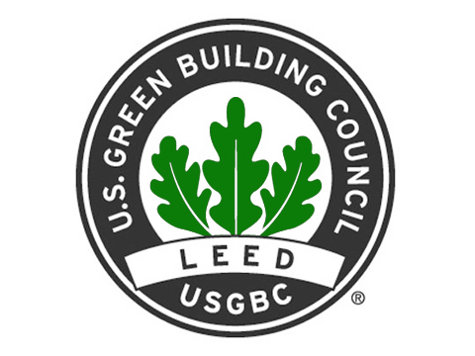In a move that should serve to put the federal government on notice, Georgia Governor Nathan Deal has taken a positive step towards ensuring fairness between green building certification standards.
Per a report from Peach State political blog:
Georgia Gov. Nathan Deal has ordered state agencies to broaden eligibility guidelines of timber in government buildings to include those sourced from forests certified by alternative programs, effectively banning a controversial green building program that recognizes only one certification standard.
As stated, the order deals a serious blow to the Leadership in Energy and Environmental Design (LEED) standards that have left millions of acres, in Georgia alone, underutilized:
A report issued last year by the United States Forest Service revealed 24.4 million acres of the state’s entire 37 million acres of land area is timberland available for commercial use.
But much of that timber is necessarily excluded from application in state and federal buildings because the standards to which it was certified is not recognized by the Leadership in Energy and Environmental Design (LEED) program, which 34 state governments and 14 federal agencies or departments mandate adherence.
Adhering to only one standard of forest certification, the Forest Stewardship Council, LEED has essentially monopolized the process due to some 34 states and 14 federal agencies mandating it all for building projects. The issue is heightened when it is taken into account that FSC lands make up “less than one quarter of the nation’s certified forests and is partial to environmentalists.”
As such, unrelenting barriers have been propped up in what seems no more an attempt to further pacify activists unwilling to listen to reason. Clearly no regard for utilizing American resources in a responsible, cost-efficient fashion seems to be at work here.
Furthermore, there appears to be no regard for creation of American jobs. With the economy stagnant, and unemployment above 8 percent for a staggering 42 months in a row, breaking the LEED monopoly would seem a logical step towards creating timber jobs.
Naturally, when the reality of how little American land is certified by SFI, it becomes plain that steps must be taken to stop the unruly cycle of appeasement before practicality and what’s best for American workers.
With specific regard to Georgia, Deal’s order follows a 2011 United States Forest Service report that “revealed 24.4 million acres of the state’s 37 million acres of land area is timberland available for commercial use”.
The executive order itself reads:
“Recognizing all forest certifications equally will help promote sustainable forestry in the State and Georgia and help create thousands of jobs while maintaining our strong outdoor heritage… Therefore … the design, construction and maintenance of any new or expanded state building shall incorporate ‘Green Building’ standards that give certification credits equally to forest products grown, manufactured and certified under the Sustainable Forestry Initiative, the American Tree Farm System and the Forest Stewardship Council.”
It would seem reasonable to recognize that permitting a process to allow competition between certification standards would better open the doors towards efficiency and sustainability. Yet, for the activists more interested in their agenda, why bother with fairness when you already have a monopoly?
Fortunately, for those desiring fair practices in the area of forest certification standards, Georgia’s Deal is not the first to drop the gauntlet of fairness on LEED.
Earlier this year, Maine Governor Paul LePage issued an executive order which Deal’s largely mirrored, opening the doors to competition to multiple certification standards, as opposed to FSC’s LEED-backed monopoly.
The Georgia order applies to any new building project, as well as expansions of old, for state buildings.

COMMENTS
Please let us know if you're having issues with commenting.